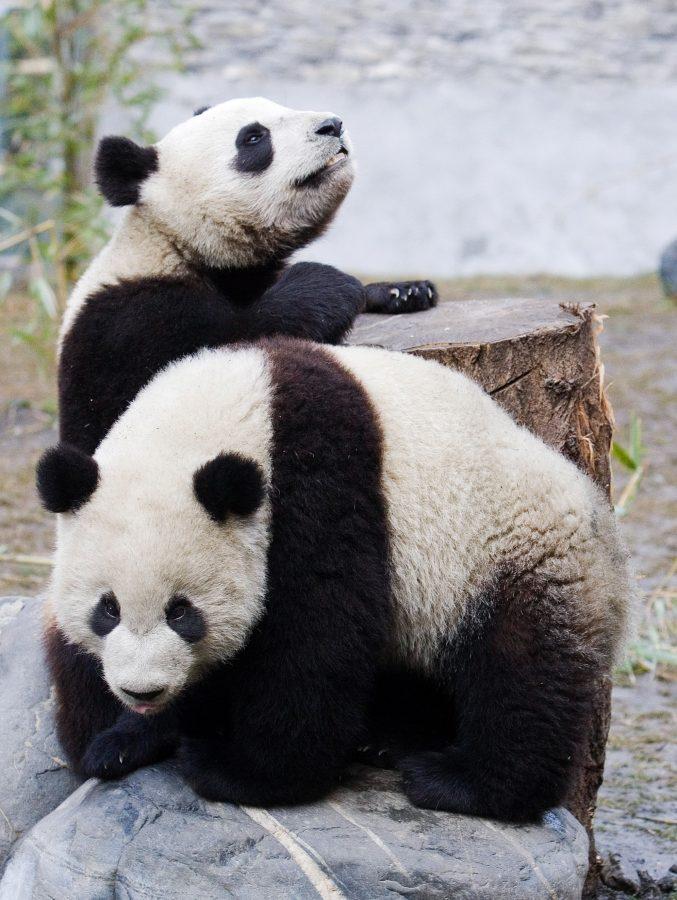China uses panda bears as a tool to pursue political agenda
Panda bears Tuantuan (top) and Yuanyuan (bottom) play within their protected enclosure at the Wolong Panda Protection Reseach Center in Wolong, China, February 22, 2006.
March 27, 2017
 When thinking about establishing diplomatic relations with a country, fast-paced scenes from “The West Wing” or “House of Cards” might pop into your mind. Or, more currently relevant, maybe a wall or a refusal to shake hands with foreign Prime Ministers.
When thinking about establishing diplomatic relations with a country, fast-paced scenes from “The West Wing” or “House of Cards” might pop into your mind. Or, more currently relevant, maybe a wall or a refusal to shake hands with foreign Prime Ministers.
It’s unlikely that you would think, instead, of pandas. But for a millennia now, China has been using these adorable native animals as a form of diplomacy by strategically selecting which countries to loan out panda bears to for their zoos.
Initially, they were given as gifts, but as they became endangered, they were instead given as loans. China uses pandas as a tool to establish warm relations with trade partners or allies, and also take them back when the country is displeased.
Just over a month ago, Washington D.C.’s beloved baby panda, Bao Bao, was sent back to China — a bittersweet moment for many in the capital.
Although there is a clause in the panda loan agreement that all offspring of loaned pandas are still the property of China and must be returned by age four, others wonder if this return is also a message sent by China to demonstrate their displeasure, perhaps because of President Obama’s private meeting with the Dalai Lama, a vocal critic of China.
Get The Daily Illini in your inbox!
China’s international power is undeniable, and their approval is highly sought after for economic reasons. This, in addition to the fact that nearly everyone adores these giant cute bears, keeps zoos and their countries clawing at a chance to get a pair of pandas.
China, recognizing this, uses them as a tool to push their national agenda. The continued dispute concerning the independence of Taiwan and China was highlighted when China gave Taiwan two pandas, Tuan Tuan and Yuan Yuan (meaning “reunion”), as gifts representing China’s intentions of reuniting with Taiwan.
Although using these adorable fuzzy bears as their messengers is clever on China’s part, the hype perhaps exceeds its value. Cities have fundraised millions of dollars over several years for the chance to receive a panda on loan, often without reward.
The species are endangered and are definitely treated with care in their host countries, but using these cuddly animals as prizes and incentives for other nations is an ethical grey area to me.
It is, however, without a doubt interesting politics and an example of innovative diplomacy that even college students can take a lesson from.
By using something unexpected as an ambassador, China sends a clear message about their feelings, while not resorting to violence. Sure, it might be petty to take away an adorable animal every time another nation disagrees with China’s policies, but it has so far proven to be a very effective method of subtle diplomacy for the country.
Shankari is a sophomore in LAS.








